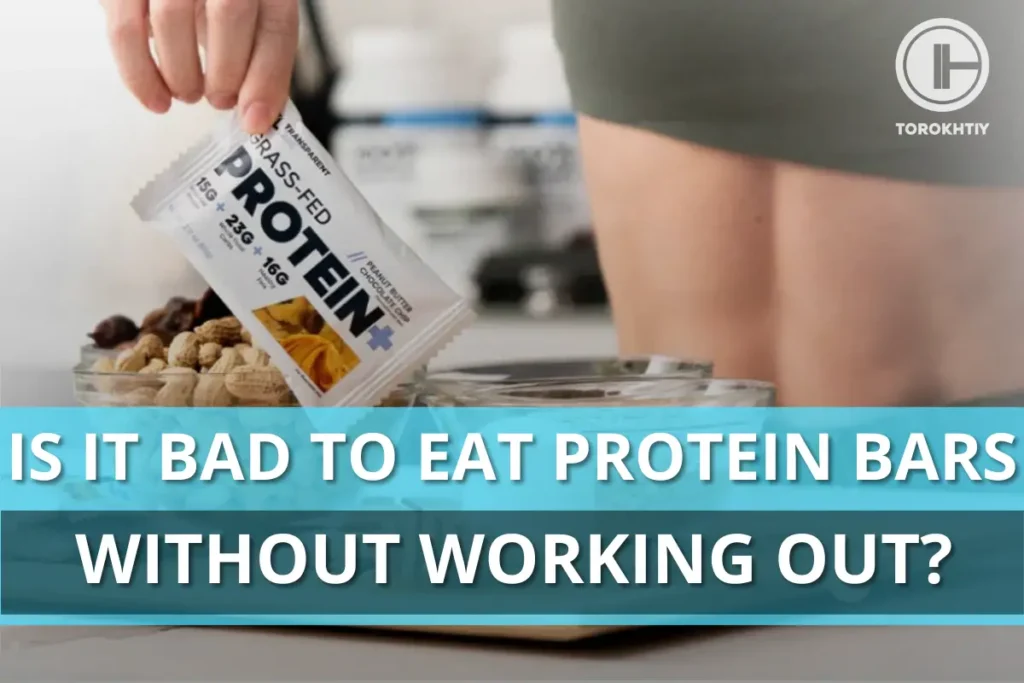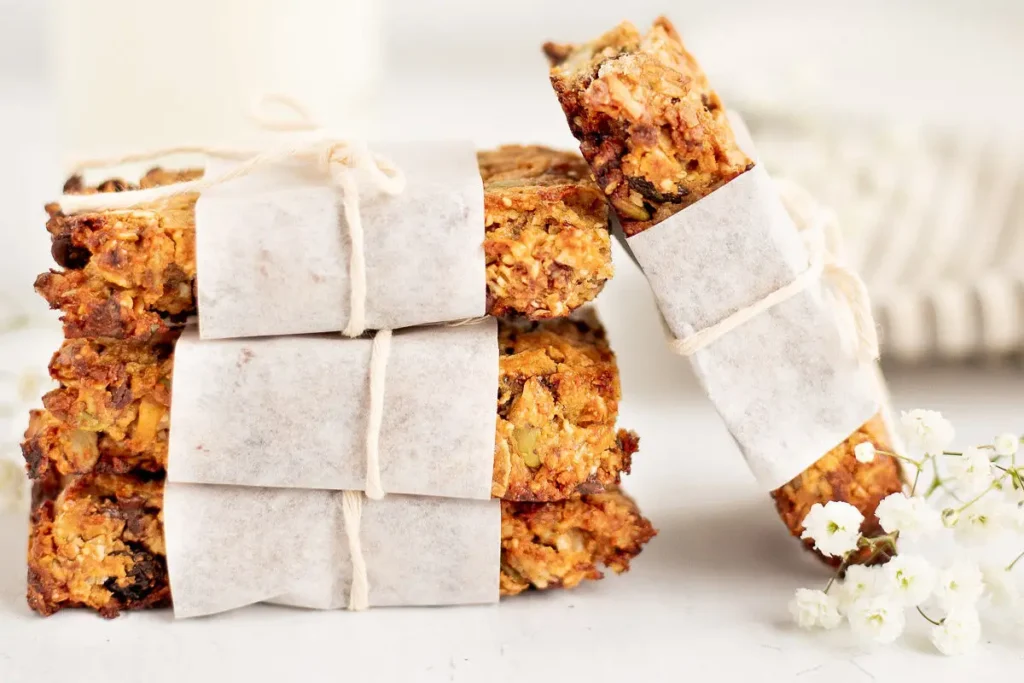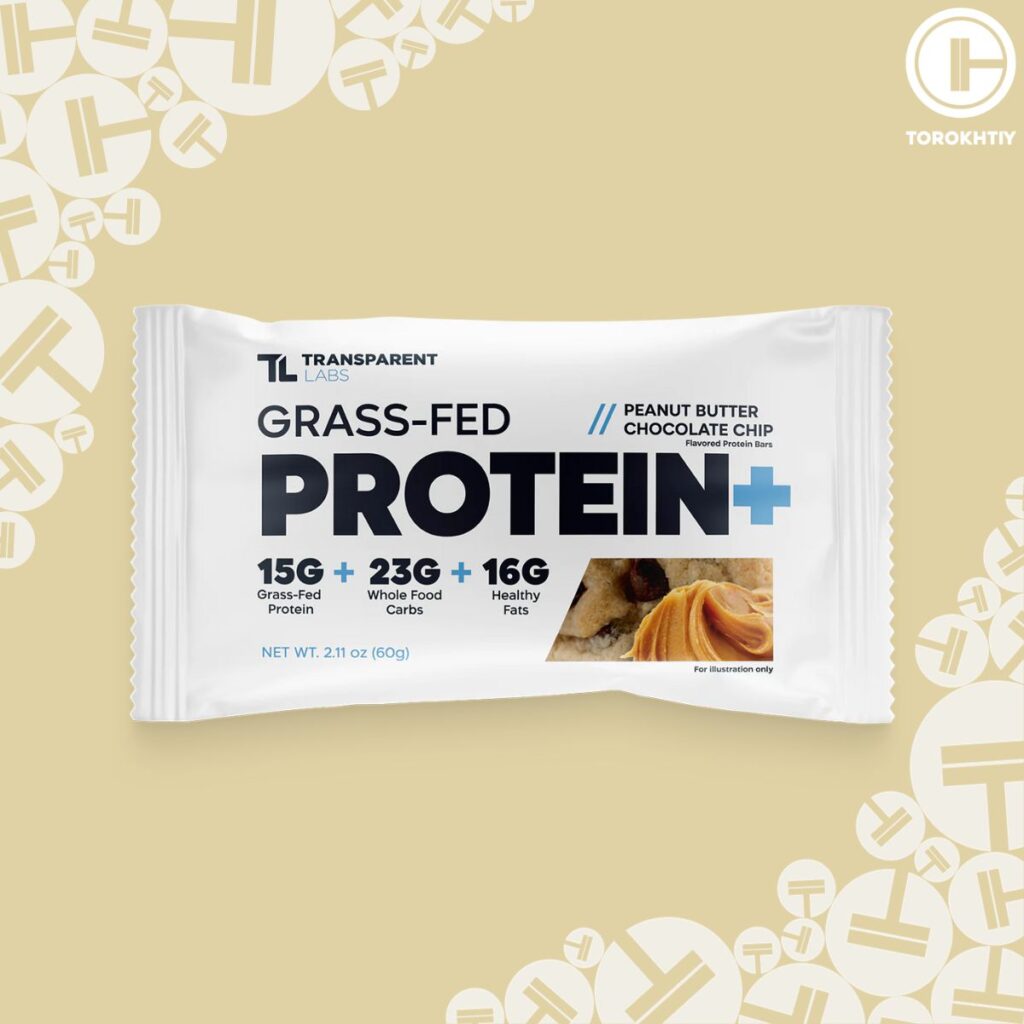Is It Bad To Eat Protein Bars Without Working Out?
Author:
Unlock your full potential by engaging with our experts and community! Have questions about your fitness journey or looking for expert advice on weightlifting techniques? Don’t hesitate — leave a comment below and David Sasha Schulz will provide a personalized answer and insights to help you reach your goals.
Torokhtiy is reader-supported. Some links are affiliate links, and we may earn a commission at no extra cost to you. See our disclosure page for details.
Protein bars are a quick way to add protein to your diet. They can help increase satiety levels and prevent you from getting hungry.
Also, thanks to their protein content, they can help support muscle mass. But is it bad to eat protein bars without working out?
In this article, we will review if eating protein bars without out is okay and what benefits they have to offer.
It is not bad to eat protein bars without working out. They can be a good snack to provide protein to your diet. However, since they may be high in calories, you need to keep track of your total caloric intake to prevent overeating, which will result in body fat gain.

Is It Bad To Eat Protein Bars Without Working Out?
It is not bad to eat a protein bar without working out. However, if you are not careful and don’t track your overall calories, it can lead to weight gain due to overeating. Protein bars tend to be high in calories, so consider tracking how many calories you eat throughout the day.
But besides tracking your calories, you need to be careful about which protein bars you add. Some protein bars are high in sugar, making them a less healthy option (whether you are working out or not).
Search for a protein bar with a low sugar content (less than 10 grams) and a high protein content (20 grams or more per serving).
Why Can Protein Bars Still Be Good If You Don’t Exercise?
If you are thinking about adding a protein bar on your rest days, know it is possible. They can be a good snack, dessert, or a great way to add protein to a smaller meal.

1. A Great Option For A Snack
Protein bars can be a simple, healthy, and nutritious snack. Since they provide carbs and protein, they can boost energy levels or prevent you from unhealthy or calorie dense snacking between meals. As a result, they can help reduce your caloric intake, promoting weight loss.
Replacing larger, more complete meals with protein bars, however, may not provide enough nutrients and calories, potentially resulting in muscle loss.
2. Ideal As A Dessert
A protein bar can be a healthier alternative than a brownie or candy bar if you have a sweet tooth. Nowadays, you can find delicious protein bar options that provide you with the sweetness you want without all the large quantities of calories, sugars, and fats.
If your caloric intake allows it, you can cut it into pieces and sprinkle them on top of low calorie ice cream or frozen yogurt. It will be one of the tastiest and healthiest desserts you’ve ever tried.
3. To Help You Cover Your Protein Needs
Research shows that the recommended protein intake is between 1.4 and 2.0 grams of protein per kilogram of body weight (0.64 to 0.91 grams per pound). This means that someone who weighs 180 pounds should be eating 115 to 164 grams of protein.
While some people may not have trouble reaching their daily protein requirements, others do. Protein bars can be a solution to help you reach your protein requirements without feeling too stuffed.
Our Recommendation
Transparent Labs Protein Bars
- Protein Source: Grass-Fed Whey Protein Isolate
- Flavors: Peanut Butter Chocolate Chip
- Vegan: No
- Protein per bar: 15g
- Fats ber bar: 16g
- Carbs per bar: 23g
- Fiber per bar: 3g
- Added Sugar: 5g
- Sugar Alcohol: No
- Calories per bar: 280
- Sodium per bar: 280mg
- Bars per Package: 12
- Bar Weight: 60g
- Price per bar: ~$3.33
- Recommended by Athletes: Hafthor Bjornsson, Paul Sklar, Sean Harris
For the best protein bar option, Transparent Labs grass-fed protein bars are a great option that can provide enough protein to keep your hunger levels at bay. Each protein bar contains 15 grams of protein, 3 grams of fiber, and only 5 grams of added sugars.
In addition, the protein bars are free from artificial sweeteners and contain no artificial colorings or preservatives.
But the best thing is their flavor. They come in a delicious peanut butter chocolate chip flavor. So, if you are craving something chocolaty and sweet, these will help you!
However, keep in mind that it contains 280 calories per serving and 16 grams of fat. Ensure you track your calories and macros to prevent fat gain.
FAQ
What Happens if I Eat Protein Bars Without Working Out?
If you control your caloric intake, you can easily add a protein bar even though you didn’t exercise during the day. However, since some protein bars are high in calories, you must keep track along with the rest of your meals to avoid a caloric surplus.
Are Protein Bars Only for Exercise?
No, protein bars can provide protein for those who need a quick snack or are having trouble reaching their protein needs.
Conclusion
So, do protein bars make you fat if you don’t work out?
If you control your caloric intake, adding a protein bar without exercising won’t make you gain weight. However, you must control the rest of the meals to stay within your calorie budget.
Protein bars can be a great snack, dessert, or a way to help you cover your protein needs. If you want the best-tasting and cleanest protein bar, Transparent Labs offers a grass-fed protein bar with peanut butter chocolate chip flavor.
What is your favorite protein bar flavor? Let us know in the comments.
Also read:
- Do Protein Bars Help You Lose Weight
- Why Do Protein Bars Taste Bad
- Are Protein Bars Actually Good For You
- When Should You Eat Protein Bars
- Do Protein Bars Make You Gain Weight
- Is It Bad to Eat Protein Bars Everyday
- Are Protein Bars Good for Breakfast
- Do Protein Bars Give You Gas
References:
- Leaf A, Antonio J. The Effects of Overfeeding on Body Composition: The Role of Macronutrient Composition – A Narrative Review. International journal of exercise science. 2017;10(8):1275-1296. https://www.ncbi.nlm.nih.gov/pmc/articles/PMC5786199/
- Stanhope KL, Schwarz JM, Keim NL, et al. Consuming fructose-sweetened, not glucose-sweetened, beverages increases visceral adiposity and lipids and decreases insulin sensitivity in overweight/obese humans. Journal of Clinical Investigation. 2009;119(5):1322-1334. doi:https://doi.org/10.1172/jci37385
- Paddon-Jones D, Westman E, Mattes RD, Wolfe RR, Astrup A, Westerterp-Plantenga M. Protein, weight management, and satiety. The American Journal of Clinical Nutrition. 2008;87(5):1558S1561S. doi:https://doi.org/10.1093/ajcn/87.5.1558s
- Donnelly JE, Jakicic J, Gunderson S. Diet and Body Composition. Sports Medicine. 1991;12(4):237-249. doi:https://doi.org/10.2165/00007256-199112040-00003
- Jäger R, Kerksick CM, Campbell BI, et al. International Society of Sports Nutrition Position Stand: protein and exercise. Journal of the International Society of Sports Nutrition. 2017;14(1). doi:https://doi.org/10.1186/s12970-017-0177-8
Why Trust Us?
With over 20 years in Olympic weightlifting, strength training, nutrition coaching, and general fitness our team does its best to provide the audience with ultimate support and meet the needs and requirements of advanced athletes and professional lifters, as well as people who strive to open new opportunities and develop their physical capabilities with us.
By trusting the recommendations of our certified experts in coaching, nutrition, and sports training programming, as well as scientific consultants, and physiotherapists, we provide you with thorough, well-considered, and scientifically proven content. All the information given in the articles concerning workout programming, separate exercises, and athletic performance, in general, is based on verified data.
The product testing process is described in more detail here.
Author: David Sasha Schulz
Doctor of Chiropractic, BSc Human Biology, CSCS
Strength coach (CSCS) – 10 years
Sasha is a Chiropractor and Kinesiologist practicing in Kelowna, BC, Canada. He has been practicing Chiropractic since 2019, integrating manual therapy, strength training and programming principles, and nutritional strategies to get his patients optimal results. He currently scratches the competitive itch in fitness, and the occasional endurance race, and plays golf and snowboards for fun. He has an interest in all strength and fitness-related sports.




Still have questions after reading our article? Unlock your full potential by engaging with our experts and community! Don’t hesitate — leave a comment below and David Sasha Schulz will provide a personalized answer and insights to help you reach your goals.